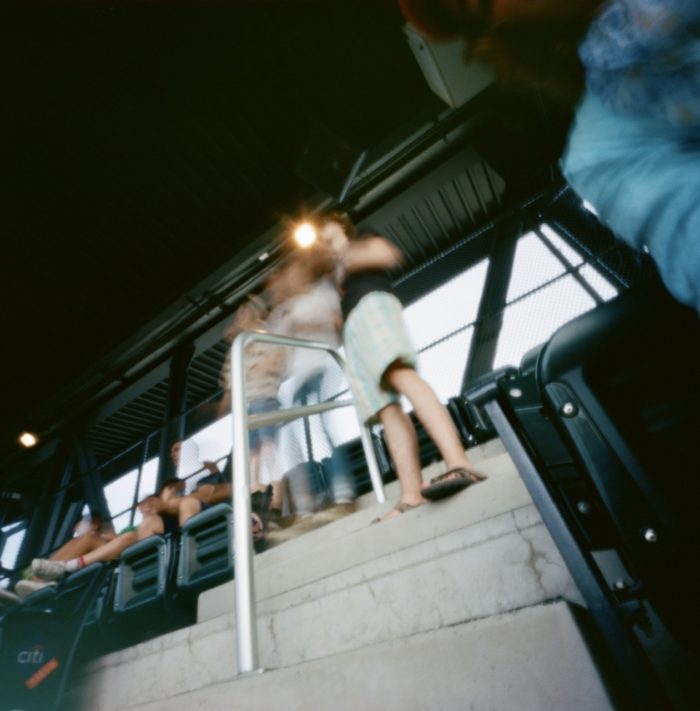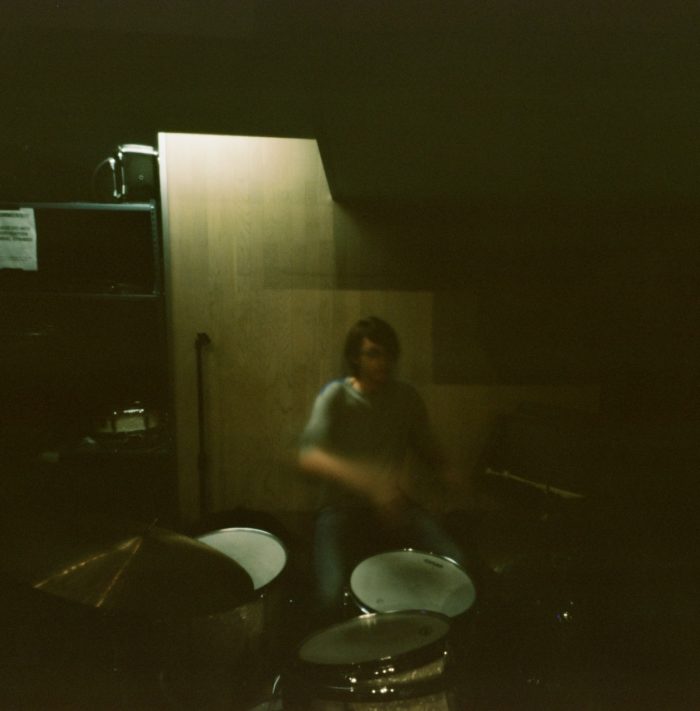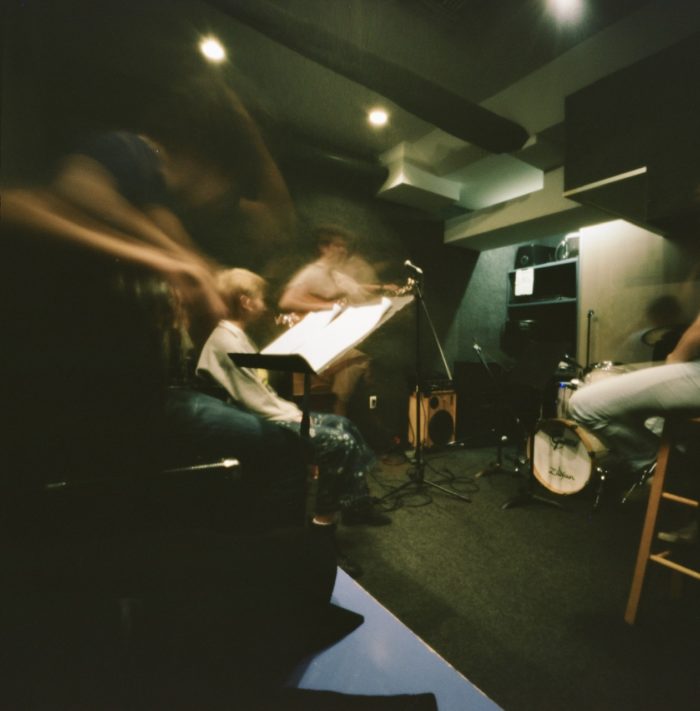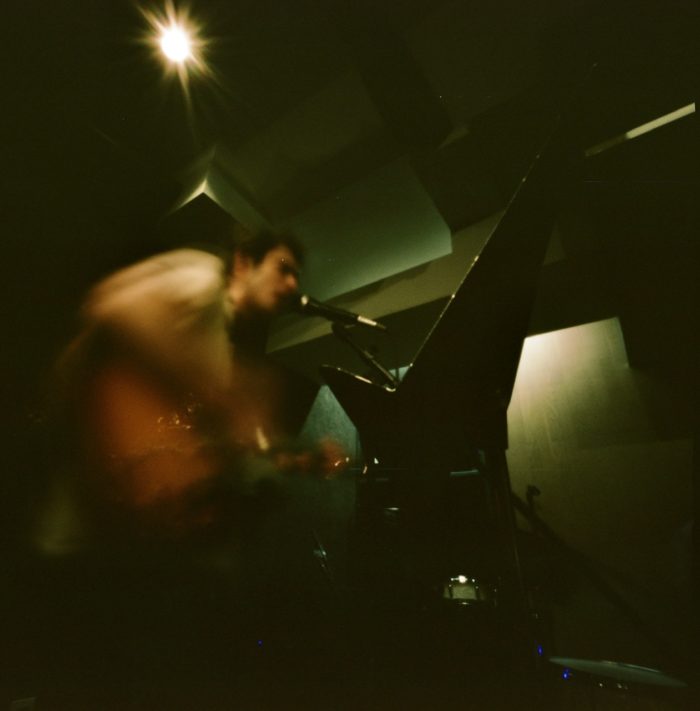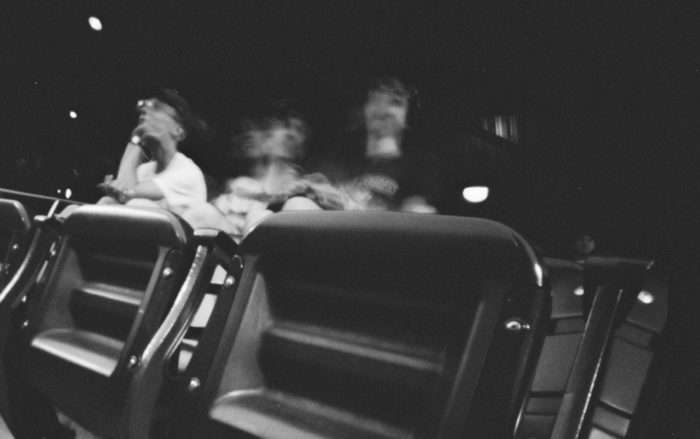
Jude and the Obscures birthed this album in the cellar of Manhattan Plaza — in pungent practice rooms floors below the housing project for artists. Rushing there from Times Sq the neon fades as the avenues keel towards the Hudson.
Jude Markey-Smith invited me to practice at the behest of drummer and astrophysicist Cassidy Soloff, also my younger brother. I show up late with my pinhole camera and a falafel platter.
While the band plays, I do my absolute best to distract bassist — blue-eyed organizer and friend of Abraham Lincoln impersonators — Luke Morrison and Cassidy — the dark matter anchor — by sharing what was left of the falafel platter, and positioning the camera a hair’s breadth from the musicians for minute long exposures. Jude keeps his relative cool, and command.
The practice rooms are booked back to back. Thousands of artists live in this residential complex where Jude was raised. I do a back of the envelop calculation. Say all the performance artists in the building form trios. 833.3 bands, repeating.
Amidst this creative density, Jude keeps plying his trade. He lifts from the obvious candidates, Shakespeare, Casablancas, Trotsky, Dylan, Marty, and another emerging mercurial voice, his own. The band had dozens of songs before they had a name, and rehearsed hundreds of hours before they performed. Now Jude has an album in the works.
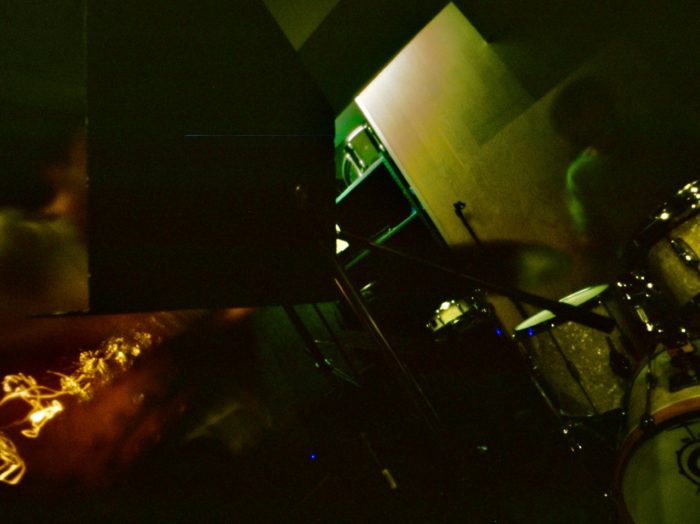
Eight songs under a working title—They All Came To Watch It Descend.
The crystal ball drops on his block. The Republic implodes in his adolescence. Echos of Tacitus. Shades of John the Baptist.
Cassidy ponders whether the universe will collapse upon itself or drift apart until completely depleted.
Jude has manifold talents. Willful overextension is his Achilles’ heel and the feather in his cap. When you draw the Wheel of Fortune prepare for a sea change. Some people have all the luck. Good and bad.

I listen to the sound coming through the walls.
Jude wears his influences on his sleeve. He rarely folds, and only bluffs for kicks.
City of Gods is a heady brew in a growler, pure angst from verse to solo and back twice as hard. Later on Jade Eyelids the band dons full Beach Goth garb. In How Far Away Jude leers at us that his life is in our hands “at last and forever.” A figure flies too close to the sun. Is he Icarus, or are we?
Farewell, Hidden Darling kicks off a la Strokes. The first words out of his mouth — “Our lives make no sense” — could be anybody aping the charts, but Jude gets weird real quick. “If it doesn’t get the proper burial, who knows when it will end?” This hidden darling resembles the antilover of Fourth Time Around, dialectical rather than desirous.
On Another Kind Jude and the Obscures turn a corner. This is the longest song on the album, the band and luminescent backing vocals envelop Jude’s soliloquy. Like other visions sung, this little number is literature.
On A Divine Sunset The Obscures go to Big Pink. Jude wafts in on a melodic baseline. “In an urgent haze, I spoke to a star.” He croons a question above the loping drums and guitar: “How did I end up like this in an hour so sever?”
Enigmatic numbers shutter the album. Stolen from a Sickbed is a song about dying, and letting die, followed by Street Beat throughout which our protagonist jubilantly declares “There is nothing to prove, and that’s the truth.”
Jude wanders alone through a desert of stone, his course charted, his stars aligned.
